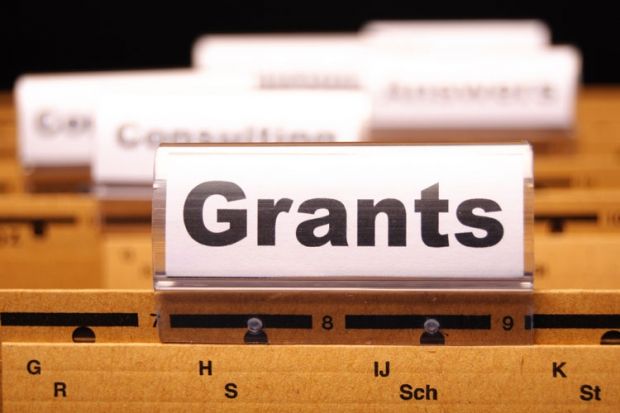National Institute for Health Research
Health Technology Assessment Programme
- Award winner: Edmund Lamb
- Institution: East Kent Hospitals University NHS Foundation Trust
- Value: £2,004,482
Accuracy of glomerular filtration rate estimation using creatinine, cystatin C and albuminuria for monitoring disease progression in patients with stage three chronic kidney disease: an observational study in a multiethnic population
Health Services and Delivery Research Programme
- Award winner: Graeme Currie
- Institution: University of Warwick
- Value: £464,054
Improving the absorptive capacity of commissioning networks for critical review of evidence to reduce unplanned elderly care admissions into acute hospitals
Biotechnology and Biological Sciences Research Council
Research Grants
- Award winner: Carolyn Moores
- Institution: Birkbeck, University of London
- Value: £351,254
Molecular mechanisms of kinesin-5s in fungal mitosis
- Award winner: Jurgen Denecke
- Institution: University of Leeds
- Value: £382,092
Functional analysis of ER and Golgi subdomains
- Award winner: Andre Gerber
- Institution: University of Surrey
- Value: £324,782
Developing tools to investigate combinatorial control of mRNA metabolism
Royal Society
University Research Fellowships
- Award winner: Kim Jelfs
- Institution: Imperial College London
- Value: £472,512
Directing the synthesis of functional molecular materials
- Award winner: Amélie Saintonge
- Institution: University College London
- Value: £464,523
Cold gas as a probe of galaxy evolution
Leverhulme Trust
Research Project Grants
Social sciences
- Award winner: Danny McGowan
- Institution: Bangor University
- Value: £30,294
Demand shocks and productivity: evidence from a natural experiment
- Award winner: Geoffrey Khan
- Institution: University of Cambridge
- Value: £136,175
Untapped manuscripts and reading traditions for a new Biblical Hebrew grammar
Sciences
- Award winner: Richard Walker
- Institution: University of Oxford
- Value: £176,559
Climatic, environmental and tectonic influences on prehistoric human development in Iran
In detail

Humanities
Award winner: Matthew Worley
Institution: University of Reading
Value: £110,569
Punk, politics and British youth culture 1975-85
“Punk has become a defining moment of British cultural history,” writes Matthew Worley on the Leverhulme Trust website. “In its rhetoric and style, [it] seemed to encapsulate the late 1970s: the sense of crisis so resonant of the decade. It also seemed to infuse youth culture and popular culture with political significance.” This project is designed to examine the substance of punk, looking at its performance, processes and product to assess the extent of its significance as a site of political expression. In so doing, it will explore the ways in which youth culture and popular music can reflect and drive social change. It will also consider how young people forge and express their political opinions.
Register to continue
Why register?
- Registration is free and only takes a moment
- Once registered, you can read 3 articles a month
- Sign up for our newsletter
Subscribe
Or subscribe for unlimited access to:
- Unlimited access to news, views, insights & reviews
- Digital editions
- Digital access to THE’s university and college rankings analysis
Already registered or a current subscriber? Login
